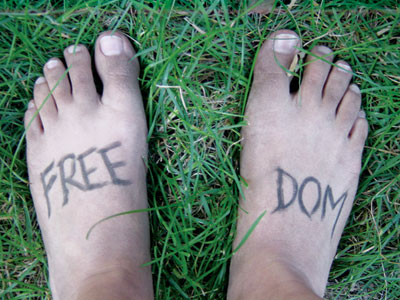All Nonfiction
- Bullying
- Books
- Academic
- Author Interviews
- Celebrity interviews
- College Articles
- College Essays
- Educator of the Year
- Heroes
- Interviews
- Memoir
- Personal Experience
- Sports
- Travel & Culture
All Opinions
- Bullying
- Current Events / Politics
- Discrimination
- Drugs / Alcohol / Smoking
- Entertainment / Celebrities
- Environment
- Love / Relationships
- Movies / Music / TV
- Pop Culture / Trends
- School / College
- Social Issues / Civics
- Spirituality / Religion
- Sports / Hobbies
All Hot Topics
- Bullying
- Community Service
- Environment
- Health
- Letters to the Editor
- Pride & Prejudice
- What Matters
- Back
Summer Guide
- Program Links
- Program Reviews
- Back
College Guide
- College Links
- College Reviews
- College Essays
- College Articles
- Back
Taking A Boat Ride Back In Time
Tightly clutching her purse, Sarah gazed out the window. Across from the table sat her daughter, both silently and eagerly waiting for the boat to pull away from the harbor. They were headed to Robben Island, about to kindle difficult memories from the past.
More than twenty years after apartheid ended, Sarah admits she still struggles to come to terms with the new democracy of South Africa. Apartheid, an Afrikaans term meaning “separate”, was a system of government dividing people into four main racial groups—white, Asian, coloured, and black—in which whites had privilege over other races. “I always had learned to hate the white people, and now I must learn to love them,” said Sarah.
Sarah lives in Cape Town with her children and grandchildren. As a black woman during the apartheid era, Sarah admits “I faced a lot of hardship in my time. I am now seeing my grandchildren living in a new South Africa, where they are treated fairly. This makes me very happy.” Although now widowed and retired, Sarah used to work as a cleaning lady “in white homes to bring in some more money. It was hard labor and I was not paid much.”
On Thursday, Sarah made her first trip to Robben Island, a place with much historical significance to her life. Robben Island was a prison off the coast of South Africa for anti-apartheid activists. “This is a big step for me. My daughter had always wanted to go, but I was hesitant. Finally, I decided it is something I must do to pay tribute to hose that suffered.” One of these people is Nelson Mandela, the country’s first black president, who spent eighteen of his twenty-seven years imprisoned at Robben Island. Mandela passed away December 5th, sparking worldwide mourning and remembrance of his legacy.
The boat slowly pulled away from the harbor, and Sarah clutched her purse tighter. Her daughter looked at her calmly, reassuring her with a smile. A TV began to play on the lower deck—a clip on the history of Robben Island—and Sarah closed her eyes and listened. She remained quiet, absorbing the words of the narrator until the clip ended and the National Anthem of South Africa played. Sarah hummed along, and slowly gained momentum in excitement. She opened her mouth and sang along, ensuring she hit every note and word, as tears slowly rolled down her cheeks.
The National Anthem of South Africa, formally known as “Nkosi Sikelel Afrika”, was reformed after apartheid. It includes four of the eleven official langues and addresses the importance of being a country as one. For Sarah, “the national anthem is everything I believe South Africa can be—peaceful and happy. This song is more than just our national anthem; it is a representation of all our years of fighting for equality and independence.”
Sarah’s daughter handed her a tissue to wipe the tears staining her cheeks, but Sarah declined. “I want to leave the tears on my face. I want to show the world of my emotions, because I can.” Sarah is one among thousands of South Africans that feel a great pride in their past. Rather than feeling ashamed, “we need to use our past as a remembrance of our strength and perseverance. I always tell stories to my grandchildren, so they can pass it on to their kids, and keep our family history alive.” To Sarah, this is more important than living in a constant state of denial. “The past is the past, and we must choose how we want to look at it.”
I had not noticed Sarah until her tears. I felt a compelling need to talk to her, and after quickly snapping a photograph, I made my way to her seat. I had been learning of apartheid for two months, and had seen the immense effects it had left on the country. Now, not only was a student, but a witness to the continuation and fruition of Sarah’s story. In my personal deciphering of the history of South Africa, I was able to more deeply connect to a country and its people, in order to shape my journey and those of others.
As the boat slowed down, Sarah slid out from her seat and neared the exit. She watched the water lap against the side of the hull, the soft purring of the boat’s engine quieting. “I remember playing in the ocean as a young girl, though I was never allowed on the white beach. Now, we can all go wherever we like.” For Sarah, this is her ultimate happiness and source of pride—in small attributes that are granted equal to everyone, no matter the skin color.

Similar Articles
JOIN THE DISCUSSION
This article has 0 comments.
